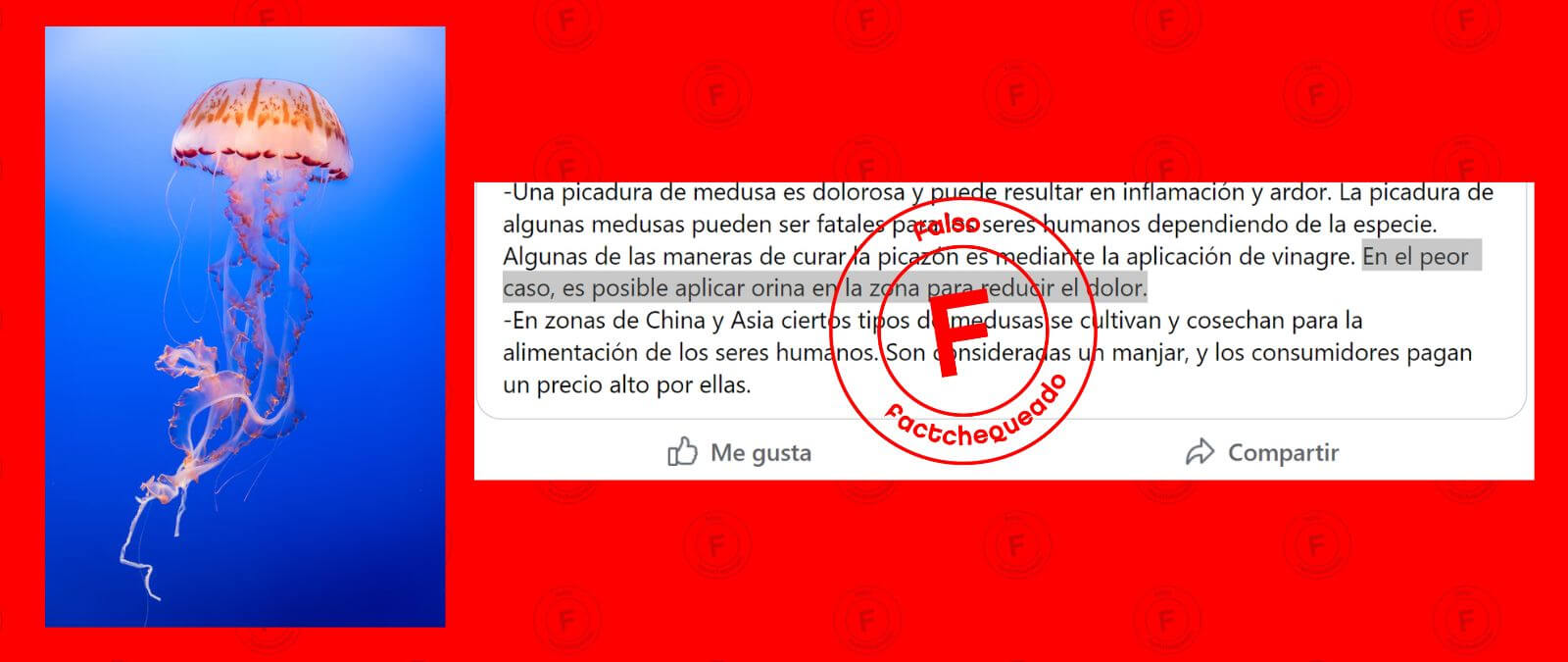We undoubtedly owe this misinformation to the writers of the Friends series, who in one episode made Chandler urinate on Monica to relieve the pain caused by jellyfish sting. Some content circulates on social networks indicating that this method is effective. But it’s actually a terrible idea, according to the American Chemical Society (ACS).
The reason is that when a jellyfish sting you, it leaves subcellular organelles called nematocysts on your skin, capable of counting to release venom even when they have already come off the animal. Any change or pressure they receive can increase their activity, and urine is one of those changes as it does not present the same salinity or the same temperature as seawater.
From vinegar to ammonia: what other remedies can be counterproductive
Some symptoms of a jellyfish sting are pain, burning swelling, redness and bleeding, according to MedlinePlus, the US National Library of Medicine.
There are many remedies on the Internet, but many of them lack scientific evidence and could make the bite worse. “The application of any form of alcohol or urine can increase pain and cause severe skin reactions,” notes the South Carolina Department of Natural Resources.
Some experts consulted by Maldita.es, co-founder of Factchequeado, also advise against applying ammonia, since “it could activate a greater discharge of toxicity”, wash the area with tap water, cover it, rub it or apply vinegar.
A study published in the journal Toxins concluded that the use of vinegar cannot be universally recommended. The researchers realized that applying it to sting from some jellyfish can be counterproductive and make the pain worse.
What to do if you get stung by a jellyfish
If a jellyfish stings you, it is advisable to wash the area with saline solutions or, failing that, with salt water. This is indicated by several experts consulted, who advised avoiding fresh water, since it can worsen the release of toxins and, with it, the reaction.
It would also be necessary to remove the filaments adhered to the skin “with tweezers or a double glove”, and never directly with our hands. The South Carolina Department of Natural Resources suggests removing them carefully using sand, clothing, towels, seaweed, or other available materials. “As long as the tentacles remain on the skin, they continue to discharge venom,” he says.
In the event that your condition worsens, the ideal is to see specialists. MedlinePlus advises that you call 911 or the toll-free Poison Help line (1-800-222-1222) to be connected to your local poison center.
Factchequeado is a fact-checking publication that builds a Spanish-speaking community to counter misinformation in the United States. Do you want to be a part? Join and verify the content you receive by sending it to our WhatsApp + 16468736087 or to factchequeado.com/whatsapp.
Also read:
Cómo las noches cálidas dañan la salud y afectan más a las personas con menor renta











